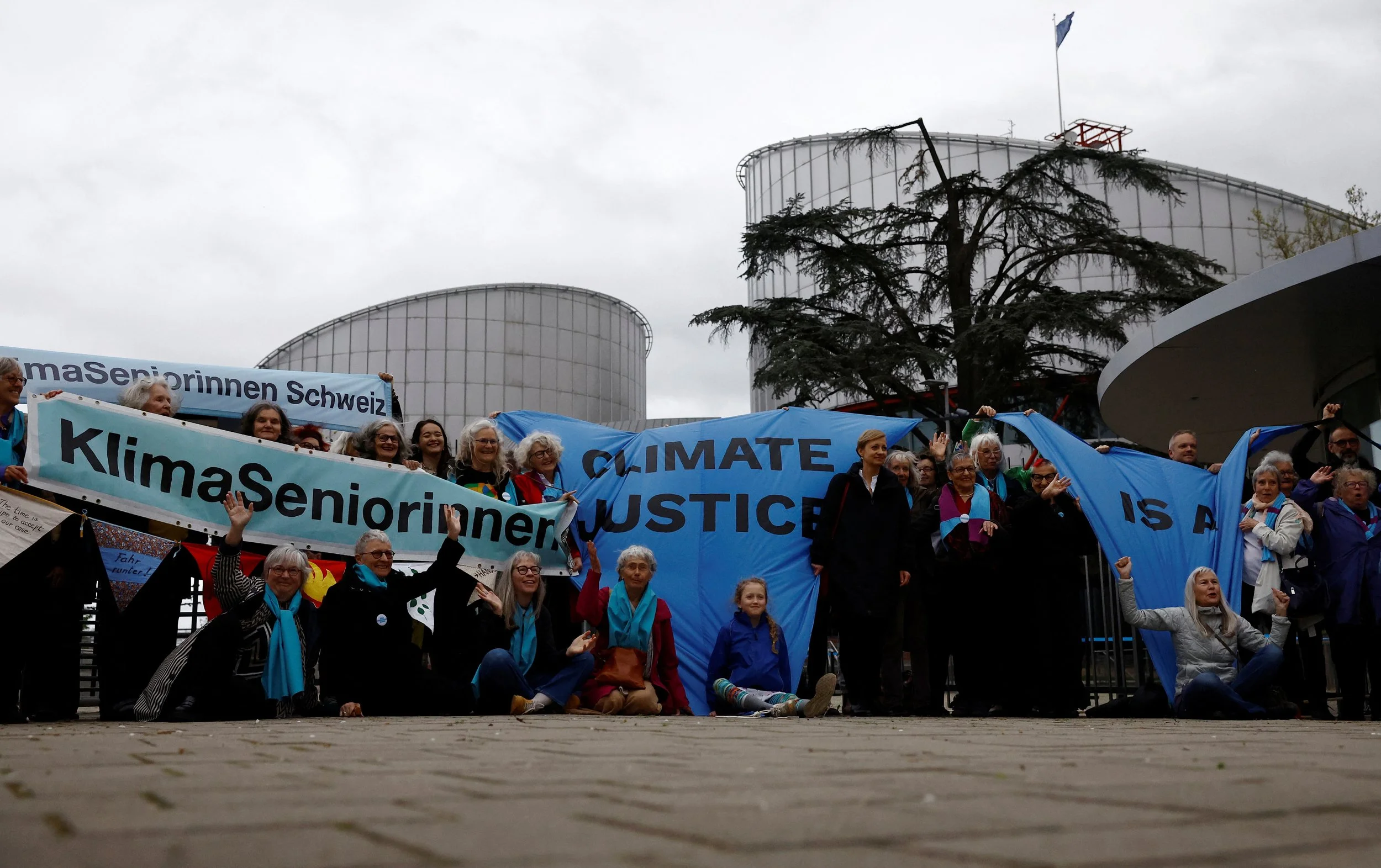See you in court! Five climate litigation cases you should know about
Across continents, ordinary people, young and old, are taking on governments and corporations over their failure to act on the climate crisis. As of June 2025, 3,099 climate-related cases had been filed in national jurisdictions and international or regional courts, tribunals, or quasi-judicial bodies. In Germany, a farmer from Peru challenged energy giant RWE for its role in melting the glaciers that threaten his city. And, in a historic ruling in Switzerland, a court argued that the government’s weak climate policies violated the human rights of its senior citizens, among them women. In South Africa, youth activists are pushing back against new coal power plans that threaten the rights of children.
These cases remind us that climate change is more than just an environmental issue; it is a justice issue. Litigation is now both a popular and effective climate action. As communities rise against polluters, so will the number of climate cases.
Lliuya v. RWE AG (Germany/Peru)
In the Andes of Northern Peru, where what was once a beautiful sight is now a looming threat, Peruvian farmer Saúl Luciano Lliuya sued German energy giant RWE, claiming its historical greenhouse gas emissions contributed to glacial melt in the Andes, threatening his hometown of Huaraz with floods. Lliuya reasoned that RWE must pay for defence and flood mitigation measures of the city
The demands: RWE is responsible for 0.5% of global emissions and should therefore pay 0.5% of a local $3.5 million flood defense project.
Why it matters: This strengthens the legal possibility of transnational climate attribution and sets precedent for communities seeking compensation.
Status of the case: The court recently dismissed the claim for damages (because the threat wasn’t deemed imminent enough). But even still, this case affirmed that major emitters can be held liable for climate harms across borders.
African Climate Alliance & Others v Minister of Mineral Resources & Energy and Others (South Africa)
In South Africa, where children’s rights are protected under the constitution, youth activists from the African Climate Alliance, alongside other environmental groups, took the government to court to stop plans for the construction of a new 1,500 megawatts coal-fired power.
The demands: The applicants asked the court to strike down government decisions approving new coal projects, arguing that they endangered the health and well-being of present and future generations.
Why it matters: This case, known as #CancelCoal, reaffirmed that the state has a legal duty to protect environmental and children’s rights under South Africa’s Constitution.
Status of the case: In December 2024, the Pretoria High Court ruled in favour of the applicants. The court found that officials failed to assess the environmental and health impacts of new coal power, particularly on children.
Verein KlimaSeniorinnen Schweiz v. Switzerland (European Court of Human Rights)
In Switzerland, where the average life expectancy is 84 years, a group of senior women known as KlimaSeniorinnen (Senior Women for Climate Protection) sued the Swiss government, arguing that its weak climate policies endangered their health and violated their human rights, given their vulnerability to worsening heatwaves. They took the case to the European Court of Human Rights (ECtHR) after exhausting all domestic legal options.
The demands: The women claimed Switzerland’s failure to reduce emissions breached their rights to life and health under Articles 2 and 8 of the European Convention on Human Rights.
Why it matters: This was the first-ever climate case heard by the ECtHR and set a powerful precedent that recognises that governments have a duty to protect citizens from the impacts of climate change through effective regulation and emission reduction.
Status of the case: The ECtHR ruled in favour of the women, finding that Switzerland had failed to act in a timely manner to establish a clear framework for limiting it greenhouse gas emissions.
Honolulu’s Suit vs Fossil Fuel Companies (USA)
In 2021, the city of Honolulu took to court some of the world’s biggest oil companies, including ExxonMobil, Shell, and Chevron. The accusation? Knowingly fuelling the climate crisis while misleading the public about the dangers of fossil fuels.
The demands: The litigants argue that decades of corporate deception have worsened sea level rise, heat waves, and coral reef destruction around Oahu. The city wants the fossil fuel giants to pay damages for the escalating costs of climate adaptation.
Why it matters: This is one of more than 30 climate accountability lawsuits filed by cities and states across the US, but Honolulu’s is the furthest along. Legal experts say this case could set a global precedent for holding oil companies liable for climate-related damages.
Status of the case: The case is currently before a Hawaii judge who is deciding whether it can proceed to trial. A ruling in Honolulu’s favour would bring the oil industry one step closer to facing cross-examination on decades of climate deception.
Mbabazi and Others v. The Attorney General and National Environmental Management Authority (Uganda)
In 2012, Ugandan environmental advocate Kenneth Kakuru and others filed a groundbreaking case on behalf of children orphaned by climate-induced flooding. They argued that the government had failed to act on climate change, despite clear constitutional obligations under Articles 39 and 237 of the Ugandan Constitution.
The demands: Their case points to the devastating impacts of floods, droughts, and other climate disasters already hitting Uganda, arguing that by not reducing emissions, the government is violating its duty to protect citizens’ right to a clean and healthy environment.
Why it matters: This is Africa’s first and one of the longest-running climate cases anchored on provisions of the country’s constitution. The suit provides insights into the impact that court delays can have on climate litigation.
Status of the case: After years of delays, the case is finally progressing. In May 2025, the court granted the government additional time to prepare its trial documents. The case was due to continue in September this year.

